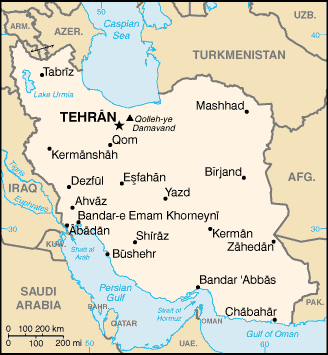The bilateral relationship between Moscow and Tehran has been converted into a growing strategic partnership.
Since President Donald Trump took office in 2017, Moscow and Tehran have shared increasingly common bonds: growing tensions with Washington and a quest to expand spheres of influence in the Middle East.
The deepening ties were reflected when Russian President Vladimir Putin flew to Tehran last November for talks with Iranian supreme Leader Ali Khamenei and President Hassan Rouhani. “Our cooperation can isolate America,” Khamenei told Putin, who in turn called the growing Russian-Iran cooperation “very productive.”

The chief of staff of Russia’s armed forces, General Valery Gerasimov, also visited Iran for talks with Major General Mohammad Bagheri, who oversees the Revolutionary Guards and the regular Iranian armed forces.
This past April, Rouhani hailed Iran’s “very close” ties with Russia. “I’m glad that our relations are developing every year,” he said. “Close relations and cooperation between Iran and Russia on Syria and peace and security in the region has been very effective,” he added.
And now that Trump has announced that the U.S. is pulling out of the Joint Comprehensive Plan of Action, the 2015 nuclear deal with Iran, they have become even closer. Russia is one of the six signatories to the agreement. Putin expressed his “deep concern” over Washington’s withdrawal.
The Iranian and Russian foreign ministers met in Moscow not long afterwards. “Unfortunately once again we see that Washington is trying to revise key international agreements, this time to the Joint Comprehensive Plan of Action, the Jerusalem issue and a number of other agreements,” Russia’s Sergei Lavrov said. Mohammed Javad Zarif agreed, of course.
However, Russian Deputy Foreign Minister Sergei Ryabkov did state that the nuclear deal with Iran could not be preserved without some concessions from Tehran.
Despite all this, the long-term sustainability of the Moscow-Tehran alignment remains unclear. For example, Iran’s use of Syrian territory to create a permanent transit point for weaponry to Hezbollah has alarmed Russian policymakers, who seek to preserve strong relations with Israel.
In any case, Russian-Iranian relations have never run smooth for long. In the 19th and early 20th centuries, Iran was divided into British and Russian zones of political and economic influence.

In 1941, during World War II, the Soviet Union and Britain invaded Iran. They feared Iran would join the war on the side of the Axis powers and were protecting their interests. These included the oil deposits belonging to the Anglo-Iranian Oil Company and the corridor which allowed the United States to supply the Soviet Union with military equipment and materials during the war.
After the war, Iran saw the Soviet Union as a greater threat than the western powers. The Red Army maintained a presence in northern Iran even after the end of the conflict, and supported the establishment of two short-lived separatist states.
In late 1945, the so-called Republic of Mahabad, in northwest Iran, came into existence, fueled by Kurdish nationalists. In early 1946, pro-Soviet Iranians proclaimed a separatist Peoples’ Republic of Azerbaijan.
Soon, an alliance of these two forces, supported in arms and training by the Soviet Union, engaged in fighting with Iranian forces, resulting in a total of 2,000 casualties.
Diplomatic pressure on the Soviets by the United States eventually led to a Soviet withdrawal and the dissolution of the separatist Azeri and Kurdish states. The crisis is seen as one of the early conflicts in the growing cold war at the time.
To this day, Iranians speak resentfully of the Soviet occupation. Ayatollah Ruhollah Khomeini, who became the supreme leader in 1979, disdained both the U.S. and the Soviet Union. His defining slogan was “Neither East nor West but Islamic Republic.”
However, with the end of the Iran-Iraq War in 1988, some Iranian officials sought to improve ties with Moscow on pragmatic grounds. By the end of the 1990s, Russia had emerged as Iran’s main conventional arms supplier. In addition, the two countries shared a strong opposition to Sunni Islamism.
The majority of Russia’s Muslims are Sunni and countering extremism has been among Putin’s official policies. Shia Iran shares this concern. So Tehran sided with Moscow during Chechnya’s separatist struggles in the 1990s.
Still, historically there has been little love lost between these two countries, and therefore their alliance can only go so far. This is really a marriage of convenience.
Henry Srebrnik is a professor of political science at the University of Prince Edward Island.
